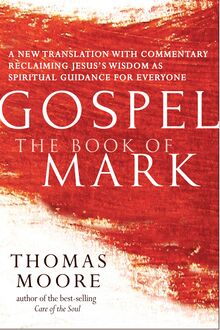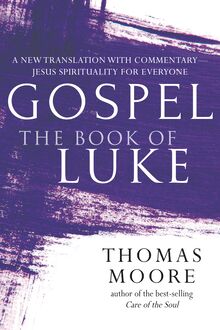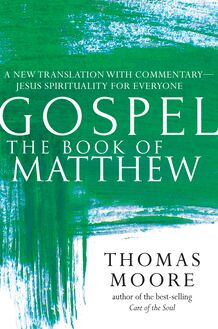-
 Univers
Univers
-
 Ebooks
Ebooks
-
 Livres audio
Livres audio
-
 Presse
Presse
-
 Podcasts
Podcasts
-
 BD
BD
-
 Documents
Documents
-
- Cours
- Révisions
- Ressources pédagogiques
- Sciences de l’éducation
- Manuels scolaires
- Langues
- Travaux de classe
- Annales de BEP
- Etudes supérieures
- Maternelle et primaire
- Fiches de lecture
- Orientation scolaire
- Méthodologie
- Corrigés de devoir
- Annales d’examens et concours
- Annales du bac
- Annales du brevet
- Rapports de stage
La lecture à portée de main
Vous pourrez modifier la taille du texte de cet ouvrage
Découvre YouScribe en t'inscrivant gratuitement
Je m'inscrisDécouvre YouScribe en t'inscrivant gratuitement
Je m'inscrisEn savoir plus
Vous pourrez modifier la taille du texte de cet ouvrage
En savoir plus

Description
Sujets
Informations
| Publié par | Turner Publishing Company |
| Date de parution | 15 avril 2016 |
| Nombre de lectures | 0 |
| EAN13 | 9781594736254 |
| Langue | English |
| Poids de l'ouvrage | 3 Mo |
Informations légales : prix de location à la page 0,1000€. Cette information est donnée uniquement à titre indicatif conformément à la législation en vigueur.
Extrait
Thank you for purchasing this SkyLight Paths eBook!
Sign up for our e-newsletter to receive special offers and information on the latest new books and other great eBooks from SkyLight Paths.
Sign Up Here
or visit us online to sign up at
www.skylightpaths.com
Send Us Your Feedback
Click here to send us your feedback and be entered into our quarterly drawing for a $100 gift certificate for SkyLight Paths books.
To Hari Kirin
Contents
Introduction to Gospel
Introduction to the Book of Matthew
Chapter 1
Chapter 2
Chapter 3
Chapter 4
Chapter 5
Chapter 6
Chapter 7
Chapter 8
Chapter 9
Chapter 10
Chapter 11
Chapter 12
Chapter 13
Chapter 14
Chapter 15
Chapter 16
Chapter 17
Chapter 18
Chapter 19
Chapter 20
Chapter 21
Chapter 22
Chapter 23
Chapter 24
Chapter 25
Chapter 26
Chapter 27
Chapter 28
Acknowledgments
Notes
Suggestions for Further Reading
About the Author
Copyright
Also Available
About SkyLight Paths
Sign Up for Email Updates
Send Us Your Feedback
Introduction to Gospel
Why a New Translation?
In my travels I have met many people who grew up hearing the Gospels in church and have now moved on in a different direction. Some have found their religion outmoded or just do not feel like participating any longer. Some have been offended, like many women who find formal religion sexist. Others are attracted to altogether different traditions, and some do not see the point of religion at all.
Many told me they missed the stories and the teachings, and wished they could have a better, more up-to-date understanding of them. I have heard from other people who did not have a Christian background and wondered if the Gospels could add to their more open-ended spiritual path. I have strong empathy for both positions and wanted to present the Gospels in a way that would speak to both.
Some Christians, both traditional and independent, expressed their fervent curiosity about how I might understand the teachings, given my unusual background as a monk, a student of world religions, and a depth psychotherapist. I felt their eagerness and sincerity when they asked me to recommend a good translation. I could not direct them without reservation to any translation that I knew and trusted, so the idea of my own version took root.
Another reason I felt it was time for a new version was my frustration at seeing faulty religious ideas, specifically about the teachings of Jesus, dragging down important political advances in our society. You do not have to look far beneath the headlines to see uninformed, emotional, and sentimental notions of Jesus s philosophy. Today we cannot afford to keep referring to outmoded and faulty versions of Jesus s teachings and using them to support questionable causes.
In the end, I wanted to make the Gospels accessible and attractive to all sorts of readers. I see no indication that Jesus intended to create a religion or a church. His purpose is clear: He wanted to raise human awareness and behavior to another level, where it would surpass its tendencies toward self-interest, xenophobia, greed, religious moralism, and an emphasis on insignificant rules. He imagined a more just and pleasurable world, a kingdom of the sky. He was explicit in instructing his students to speak to everyone, not just some particular and chosen religious group.
In my translation there is no suggestion that readers should believe in anything, join an organization, or abandon their cherished religious and philosophical ideals. I see no reason why a Christian, an agnostic, a Buddhist, or even an atheist would not be charmed and inspired by the Gospels. Anyone can freely and without any worries read the Gospels and be enriched.
These texts are sacred not because they belong to a particular religion or spiritual tradition but because they offer a vision and a way of life that transcends the limits of reason and will. They show a figure in love with life and with a heart open to all sorts of people, but at the same time a figure constantly in tune with the Sky Father, that image of ultimate transcendence that provides an opening, a tear in the fabric of human consciousness, a doorway to the infinite and the eternal.
The Gospels are not just books of practical wisdom-how to live more effectively. They are also books of mysteries, assuming that to be fully human we have to open ourselves to the mysterious depth and height of the world that is our home.
Who Was Jesus?
It is a simple question, isn t it? Who was Jesus? But the debate over the historical Jesus was been raging for at least two centuries. There is not much factual material to go on, and though the Gospels often sound like biography or history, clearly they are largely stories told to evoke a religious milieu. Historically, they are full of contradictions and gaps and fantasy material. This does not make them worthless in themselves. On the contrary, they are marvelous, simply ingenious inventions for spiritual teaching, but as history they are unreliable, to say the least.
It appears that Jesus was born around 4 BCE, when Romans were occupying the Mediterranean area of Jesus s birth and travels. Herod the Great was king, having been put in place by the Romans. Greek language and culture were strong in the area, and Egypt, with its colorful past and rich spiritual culture, was not far away. There is evidence of a temple to the Greek god Dionysus in Jesus s area, and yet he was also dealing daily with Jewish teachings, customs, and rules. The Gospels portray many verbal skirmishes between Jesus and leaders, religious and social, who spoke up for Jewish law and tradition.
Jesus taught in the synagogues and to some appeared to be the long-awaited Messiah, the anointed leader of a new Jewish order. Many events and sayings in the Gospels echo Hebrew Bible writings, suggesting a layer of Messiah in Jesus s words and actions. But this aspect also casts a shadow on Jesus s presence and work, leading to the notion that he was king of the Jews and therefore a threat to Roman, local, and religious authority. Jesus was executed somewhere around 30 BCE, perhaps in his early thirties.
It is often said that people who read the Gospels see the Jesus they want to see. Some understand him to be a religious reformer, some a social rebel, and some the founder of a religious tradition. He is sometimes described as a teacher of wisdom, a label that comes close to my own view but is not quite serious enough. I see him more as a social mystic, like a shaman who can heal and lead people to appreciate multiple layers of their reality.
At his baptism, the sky opens and the Sky Father speaks favorably of him, blessing him essentially. For me, this is a key moment, because Jesus is forever talking about his father in the sky, recommending that we always live in relation to that transcendent realm as well as in the present moment where our goodwill and powers of healing are always needed.
Jesus also has a relation to the dead, and his own death is always looming. So in the end we have a Jesus who as shaman and mystic speaks and acts from the plane of daily life, from the transcendent level of the Father, and in the realm of the dead. This is more than lessons in practical wisdom. It is a profound mystical vision that combines social action, based on the principle of friendship and not just altruism, and an all-embracing mystical awareness of timeless realities and sensibilities.
Some think that Jesus wanted to create a religion or a church. Some think he was often speaking about the afterlife. In my translation and commentary, I move in a different direction. I think he was trying to convince people to live in an entirely different way, with basic values of love and community instead of self-interest and conflict. He suggested keeping the highest ideals in mind instead of merely trying to amass money and possessions. He spoke and acted contrary to moralistic laws and customs and showed in his manner of living that friends and good company were worth more than pious activities. He told all his students to be healers and to help people rid themselves of compulsive behaviors. Above all, he suggested that we get over all the artificial boundaries set up between religions and cultures and live as though we were all brothers and sisters. Who is my family? (Matthew 12:48), he asks, and he points to the students and others gathered around him.
What Is a Gospel?
The story of Jesus s life and teachings was written down, after a fairly long period of oral storytelling, by many writers, each having a different purpose. We get the essentials of the story in Mark, strong references to Jewish tradition in Matthew, important elaboration of the stories and teachings in Luke, and a mystical dimension in John. By the fifth century CE, the church had made these four versions official. They are called canonical, the only ones approved by the church at that time: Matthew, Mark, Luke, and John. These writings first appeared somewhere between 65 CE and 110 CE, at least thirty-five years after Jesus s death. The book of Mark was the oldest, and the writers of Matthew and Luke took some material from Mark.
So think about that-a teacher appears and dies, and decades later a few devotees write down some stories about his life and try to capture his teachings, based on what had been passed down by word of mouth. Besides problems with memory, the various stories, as we see in the canonical Gospels, conveyed a different sense of what Jesus was all about. They were interpretations, not histories.
Two millennia later, modern people try to make sense of thes
-
 Univers
Univers
-
 Ebooks
Ebooks
-
 Livres audio
Livres audio
-
 Presse
Presse
-
 Podcasts
Podcasts
-
 BD
BD
-
 Documents
Documents
-
Jeunesse
-
Littérature
-
Ressources professionnelles
-
Santé et bien-être
-
Savoirs
-
Education
-
Loisirs et hobbies
-
Art, musique et cinéma
-
Actualité et débat de société
-
Jeunesse
-
Littérature
-
Ressources professionnelles
-
Santé et bien-être
-
Savoirs
-
Education
-
Loisirs et hobbies
-
Art, musique et cinéma
-
Actualité et débat de société
-
Actualités
-
Lifestyle
-
Presse jeunesse
-
Presse professionnelle
-
Pratique
-
Presse sportive
-
Presse internationale
-
Culture & Médias
-
Action et Aventures
-
Science-fiction et Fantasy
-
Société
-
Jeunesse
-
Littérature
-
Ressources professionnelles
-
Santé et bien-être
-
Savoirs
-
Education
-
Loisirs et hobbies
-
Art, musique et cinéma
-
Actualité et débat de société
- Cours
- Révisions
- Ressources pédagogiques
- Sciences de l’éducation
- Manuels scolaires
- Langues
- Travaux de classe
- Annales de BEP
- Etudes supérieures
- Maternelle et primaire
- Fiches de lecture
- Orientation scolaire
- Méthodologie
- Corrigés de devoir
- Annales d’examens et concours
- Annales du bac
- Annales du brevet
- Rapports de stage








